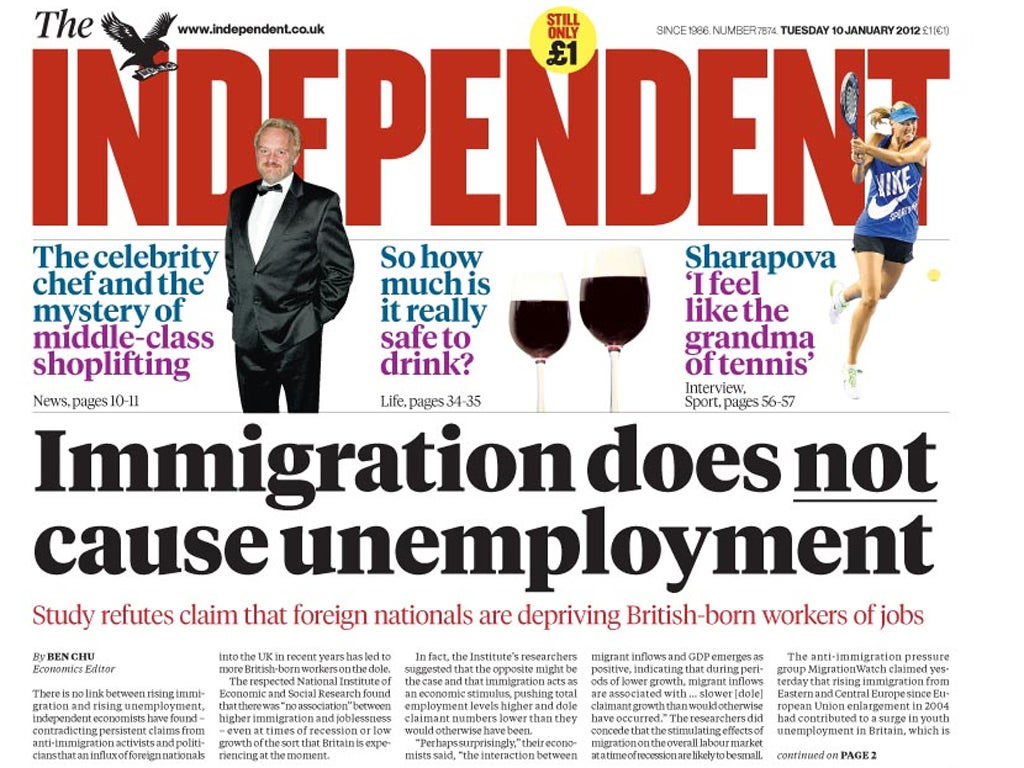Government admits EU migrants do not hurt British jobs market
Influx of non-EU workers linked to 'native' job losses, but even these are only temporary, say experts

Immigration from outside Europe is linked to short-term job losses among British workers, but the recent influx of EU nationals has made no difference to unemployment levels, the Government's expert advisers said yesterday.
For every 100 non-EU working-age migrants to Britain over the last 15 years, 23 "native workers" have lost their jobs, according to the Migration Advisory Committee (Mac). But the effect is temporary and the labour market recovers within five years to absorb the displaced British employees.
The Mac said there were 160,000 UK-born workers currently out of work after the arrival of 2.1 million migrants between 1995 and 2010, but it stopped short of saying there was a causal link between immigration and job losses.
David Metcalf, the Mac's chairman, suggested that jobs in computing and information technology, where there are skills shortages, and in hospitality and retail, where large numbers of foreign students work part-time, could have been affected. He said large numbers of migrants worked in the health and care services, but this was during a time of a lack of UK workers so British jobs were unlikely to have been displaced.
The Mac's conclusion of an "association" between immigration and unemployment, in a report to the Home Office, differs from the National Institute of Economic and Social Research's assessment, which determined there was no connection.
However, the Mac also said migration from the EU, including Poland, had "little or no impact on the native employment rate" – a finding that runs counter to claims by the MigrationWatch pressure group.
Mr Metcalf said: "It may well be that the EU migrants are disproportionately less skilled and it may be that the labour market can adjust. It may well be that that's tempered the impact."
The Mac said immigration had made no difference to average wages across the country, although there was evidence it boosted top salaries and depressed the lowest pay rates. It said immigration put pressure on the housing stock, calculating that it would need another 112,000 properties to be constructed by 2017, and could increase congestion on the roads.
But levels of crime were falling because skilled migrant workers were less likely to commit property crime.
Mr Metcalf criticised the use of figures for Britain's gross domestic product for measuring the impact of immigration on the grounds that large numbers of new arrivals would naturally boost the size of the economy. "The impact of migration on the economic wellbeing of the resident population should be the focus," he said.
Damian Green, the Immigration minister, said the findings demonstrated the need for the Government to continue bearing down on numbers of visas issued to non-EU nationals: "Controlled immigration can bring benefits to the UK, but uncontrolled immigration can put pressure on public services."
Join our commenting forum
Join thought-provoking conversations, follow other Independent readers and see their replies
Comments